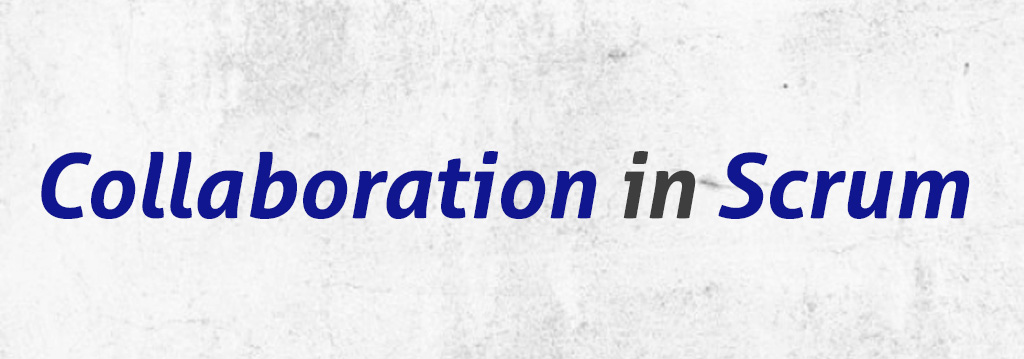
Category : Scrum
By Vineet Patni | 24 June 2018
What is Coordination?
A team of four members competes with other teams in a Relay Race. So the four people work together towards a common goal, each having a defined role. The team members know their run time and track in advance, and all runners are concerned about their runtime rather than getting involved in the runtime of other members.
The question is when the race starts, are they collaborating? They are not collaborating; they are instead coordinating. A Relay Race needs more Coordination, like what height one will pass the baton, what will be position, etc. So, a Team can win a relay race together by coordinating.
What is Collaboration?
Another analogy is of a team playing Rugby. It is challenging to pre-decide which path to follow or where to throw the ball. The Team needs to know what field will offer them and how the opponent will play; all situations are unpredictable. The Team players must pass the ball back and forth, per the game situation and opponents, to achieve a goal. Are they coordinating or collaborating?
A Rugby match is a complex field where the players collaborate and coordinate simultaneously. It is one of the most compelling examples to understand what Collaboration is. The Team must collaborate to target a purpose, and Coordination is necessary. Hence, Coordination is the stepping stone toward reaching Collaboration. You can only collaborate if you are at least in a position to coordinate, so we should be aware of our team members and their skill set.
Scrum Requires and Promotes Collaboration
The Scrum Framework is an approach to solving complex problems and draws inspiration from Rugby. It is a default nature of Scrum that automatically involves Collaboration. Everyone involved, within or outside the Scrum Team, must collaborate to build a functional, valuable product.
Scrum can help us to collaborate by planning together, having a common goal, and coordinating work regularly. So, everything from planning, deciding their Goals, all interactions, and retrospection requires Collaboration within and outside the Team to achieve the best possible outcomes.
Within the Scrum Team, no roles, titles, or individual task allocation exist. The mantra is to “let them figure out how best to achieve the goals.” A Scrum Team works together to craft the Sprint Goal during the Sprint Planning and then works together to achieve their Sprint Goal. It needs to act as per the present situation rather than individuals just focusing on their entitlements. Allocating tasks in advance kills creativity and leads team members toward working in silos. Instead, Scrum educates us to learn about sharing responsibility; nobody’s work finishes until the Team achieves its goals. It is a collective responsibility to create new products by collaborating. Daily Scrum allows the Developers within the Scrum Team to adapt to changes.
The Collaboration in Scrum does not just remain within the Team. During the Sprint Review, the Scrum Team and its stakeholders collaborate to inspect the results achieved thus far and explore ways to develop the product’s value further.
Scrum Master as the Collaboration Conductor:
A collaboration conductor generally facilitates Collaboration between people by enabling quality conversations and providing a safe environment. The Scrum Master is the most suitable for this role.
A Scrum Master must inculcate collaborative behavior among team members, both within the Developers, between the Developers and the Product Owner, and between the Scrum Team and its stakeholders. A Scrum Master must build a collaborative relationship, especially with the Product Owner, and there has to be some helpful tension between them. By enabling open conversations and creating an environment of trust and Collaboration, the value the Scrum Master brings to the Team, and the organization is priceless and beyond measurements.
About The Author:
Vineet Patni is the Founder and Principal Agile Coach at ScaleUp. An avid learner and a passionate facilitator, Vineet has been assisting enterprises and individuals in becoming truly Agile. Please feel free to connect with him at Vineet@ScaleUpConsultants.com .
Disclaimer: The opinions expressed in this post are the author’s own. The author welcomes and respects any difference of opinion.


Leave a Reply